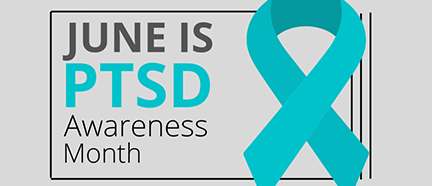By V.S. Santoni
June is PTSD Awareness Month, a time dedicated to understanding post-traumatic stress disorder and its effects on individuals. Once thought to primarily affect war veterans, PTSD is now recognized as a condition that can impact anyone following a traumatic experience. For Black Americans, this trauma often stems from the pervasive effects of racism, adding a unique dimension to their mental health struggles.
PTSD, or post-traumatic stress disorder, is a chronic mental health condition triggered by exposure to a traumatic event, whether a single incident or recurring situations. Symptoms include intrusive thoughts, avoidance of trauma-related stimuli, significant mood changes, and heightened vigilance. These criteria, outlined in the Diagnostic and Statistical Manual of Mental Disorders (DSM-5), help psychiatrists diagnose the disorder.
When discussing trauma, common associations include abuse, neglect, or assault. However, for many Black Americans, daily experiences of racial discrimination contribute to a persistent state of trauma. This includes heightened anxiety at the sight of police, being unfairly labeled in educational settings, or facing unwarranted suspicion in public spaces. Over time, these microaggressions and systemic injustices accumulate, severely impacting mental health.
Historically, terms like “racial battle fatigue” and “post-traumatic slave syndrome” have been coined to describe the ongoing trauma linked to racism. These concepts highlight how everyday interactions, compounded by historical and generational trauma, affect Black individuals. The “Strong Black Woman” trope, a legacy of slavery and systemic racism, exemplifies this. Expected to display unwavering strength and resilience, Black women often suppress their emotions, exacerbating mental health issues.
Adverse Childhood Experience (ACE) scores, which measure stressful or harmful childhood events, show that Black children often have higher ACE scores due to factors like frequent relocations, food insecurity, and poor treatment in schools. These high scores correlate with increased risks of chronic health conditions, including hypertension, diabetes, and depression. Studies indicate that the chronic stress from racial discrimination elevates cortisol levels, leading to these health issues.
Despite the evident need for mental health support, many Black individuals are reluctant to seek treatment. A significant percentage view mental health conditions as signs of weakness, further stigmatizing those who suffer. This reluctance is compounded by a lack of access to culturally competent mental health care.
Managing PTSD involves a combination of medication and psychotherapy. Antidepressants, such as selective serotonin reuptake inhibitors (SSRIs), commonly prescribed, alongside therapies like cognitive behavioral therapy (CBT), eye movement desensitization and reprocessing (EMDR), and trauma-focused therapy.
PTSD Awareness Month serves as a crucial reminder of the unique challenges faced by Black Americans. Understanding and addressing the intersection of racism and mental health is essential in providing effective support and promoting healing within the community.
Copyright 2024 TNTRIBUNE, All rights reserved.


